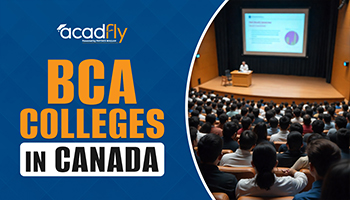

Navigating the world of higher education involves much more than simply attending classes and completing assignments. To truly thrive during your time at university, it’s crucial to immerse yourself in the campus environment and utilize every available resource to enhance your academic and personal growth. This guide aims to walk you through the process of maximizing campus resources, from accessing free campus resources to leveraging student services, ensuring you make the most out of your university experience.
Understanding Campus Resources and Services
Campus resources and services play a pivotal role in supporting students through various aspects of their academic and personal lives. These resources encompass a broad spectrum of support systems, including academic advising, career counseling, mental health support, and recreational facilities. By understanding what is available and how to access these resources, you can significantly enhance your university experience.
What Are Campus Resources?
Campus resources are services and facilities provided by universities to support students in their academic and personal pursuits. These include libraries, academic support centers, health services, and recreational facilities. Each resource is designed to address specific needs and challenges faced by students.
Importance of Utilizing Campus Resources
Utilizing campus resources is essential for academic success and personal well-being. By engaging with these resources, you can improve your study habits, manage stress, and build a strong support network. Consequently, this can lead to a more fulfilling and successful university experience.
Utilizing Student Services
Student services are designed to assist you in numerous ways, addressing both your academic and personal needs. Here’s a closer look at some of the most critical student services and how they can benefit you:
1. Academic Advising and Counseling
Academic advising and counseling provide students with guidance on course selection, academic goals, and personal development. Advisors help students navigate their educational journey, offering support for both academic challenges and personal concerns to ensure overall success.
Role of Academic Advising
Academic advising helps you navigate your academic journey by guiding course selection, degree planning, and academic performance. Advisors assist in setting academic goals and addressing any challenges you may face. For instance, if you’re struggling with a particular subject or need help planning your course load, your advisor can offer valuable insights and resources to support you.
Career Counseling
Career counseling, often integrated with academic advising, helps you explore career options, develop job search strategies, and prepare for the professional world. By engaging with career services, you gain access to resume-building workshops, interview preparation sessions, and networking opportunities. Consequently, this support can smooth your transition from university to the workforce.
2. Health and Wellness Services
Health and wellness services provide support for students' physical and mental well-being. These services often include access to medical care, counseling, fitness programs, and health education to help students maintain a balanced and healthy lifestyle while studying.
Medical Care
Health and wellness services on campus include medical care such as routine check-ups, vaccinations, and treatment for illnesses. These services ensure that you can maintain your health and focus on your studies without being burdened by health issues.
Counseling and Mental Health Support
Counseling services provide therapy and support for managing stress, anxiety, and other mental health concerns. These services are crucial for maintaining overall well-being and addressing any emotional challenges you may face during your time at university.
Free Campus Resources
Many universities offer a variety of free resources that can greatly benefit students. These resources are designed to enhance your academic performance, personal growth, and overall campus experience. Here’s a detailed look at some common examples:
1. Libraries and Research Facilities
Libraries and research facilities provide students with access to a wide range of academic resources, such as books, journals, and databases. These spaces are essential for conducting research, studying, and finding reliable information for assignments and projects. Many institutions also offer quiet study areas and expert support from librarians.
Access to Academic Resources
University libraries offer access to extensive collections of books, journals, and online databases. They also provide study spaces, research assistance, and technological support. For instance, if you need help with a research project, the library’s research services can guide you in finding and using relevant sources.
Study and Research Support
Libraries often host workshops on research skills and academic writing, which can enhance your learning experience. Additionally, libraries offer quiet study rooms, group study spaces, and computer labs to help you create an optimal study environment.
2. Tutoring and Academic Support Centers
Tutoring and academic support centers provide students with extra help in their studies, offering guidance on difficult subjects and improving learning skills. These centers often have tutors and resources to help students succeed academically, whether through one-on-one sessions or group workshops.
One-on-One Tutoring
Tutoring services are essential for students who need additional help with their coursework. Academic support centers typically offer one-on-one tutoring, group study sessions, and workshops to assist with various subjects. For example, if you’re struggling with mathematics or writing, you can receive targeted help from tutors who specialize in these areas.
Skill-Building Workshops
Academic support centers also provide resources like study guides, practice exams, and skill-building workshops. Engaging with these resources can help you strengthen your understanding of the material and improve your academic performance.
3. Recreational Facilities
Recreational facilities on campus offer students a variety of activities to relax and stay active, such as gyms, sports centers, swimming pools, and lounges. These spaces are great for improving physical health, socializing, and taking breaks from academic work.
Fitness and Sports Facilities
Campus recreational facilities, including gyms, sports complexes, and fitness classes, are often available at no extra cost. These resources contribute to your overall well-being by promoting physical health and providing opportunities for relaxation and social interaction.
Leisure and Social Activities
Participating in recreational activities can help you manage stress, stay active, and build a sense of community. For instance, joining a sports team or attending fitness classes can enhance your campus experience and provide valuable social opportunities.
Campus Support Services
Campus support services address specific needs and challenges that students may encounter. These services are designed to provide targeted assistance and ensure that all students have equal access to educational opportunities. Here’s an overview of some essential campus support services:
1. Financial Aid and Scholarships
Financial aid and scholarships provide students with funding to help cover tuition fees and living expenses. International students can apply for scholarships offered by universities, governments, or private organizations, reducing the financial burden of studying abroad. These awards are often based on academic merit, need, or specific talents.
Understanding Financial Aid
Financial aid offices help students navigate the complexities of funding their education. They provide information on various types of financial assistance, including scholarships, grants, loans, and work-study programs. By working with the financial aid office, you can explore your options and receive guidance on applying for financial support.
Scholarship Opportunities
Many universities offer merit-based and need-based scholarships. These scholarships can significantly reduce your educational expenses and make higher education more accessible. Staying informed about scholarship opportunities and application deadlines is crucial for maximizing financial aid.
2. Housing and Residential Life
Housing and residential life play a key role in your overall student experience. Whether you live on-campus or off-campus, it's important to find a comfortable, convenient place that supports your academic and personal needs. Good housing helps create a balanced and supportive environment for your studies.
Finding Accommodation
The housing office assists students with finding accommodation, whether on-campus or off-campus. They also provide support for students living in residence halls, addressing issues such as roommate conflicts and maintenance requests.
Residence Life Programs
Residence life programs often offer various activities and events designed to help you build a sense of community and engage with fellow students. These programs can enhance your campus experience and foster lasting friendships.
3. Disability Services
Disability services provide support and accommodations to students with physical, mental, or learning disabilities, helping them succeed in their studies. These services may include accessible learning materials, assistive technology, and extra time for exams, ensuring all students have equal opportunities to thrive academically.
Accommodations and Support
Disability services are essential for ensuring that students with disabilities have equal access to all campus resources and opportunities. These services provide accommodations tailored to individual needs, such as extended test times, note-taking assistance, and accessible facilities.
Ensuring Equal Access
By working with the disability services office, you can ensure that you receive the support necessary to succeed in your academic pursuits. This support helps create an inclusive environment where all students can thrive.
Student Benefits on Campus
Being a student comes with numerous benefits that can enrich your academic and personal life. These benefits include discounts, campus events, and networking opportunities. Here’s how you can take full advantage of these perks:
1. Discounts and Offers
Discounts and offers are special price reductions or promotions available to students, often on things like transportation, food, and shopping. Many retailers and service providers offer these deals to help students save money while studying.
Campus Discounts
Many campuses offer discounts on textbooks, dining options, and local businesses. These discounts can help you save money and make the most of your student status. For example, you might receive discounted rates at campus bookstores or local restaurants.
Finding Offers
To stay informed about available discounts, regularly check campus announcements, student newsletters, and local business partnerships. Taking advantage of these offers can enhance your university experience and reduce your expenses.
2. Campus Events and Activities
Campus events and activities are a great way for students to get involved in university life, meet new people, and explore different interests. These events often include workshops, cultural festivals, sports competitions, and social gatherings, providing both entertainment and learning opportunities. Participating in campus activities helps students build a sense of community and develop valuable skills outside the classroom.
Exploring Interests
Universities host a wide range of events and activities, including academic workshops, social gatherings, and cultural events. Participating in these events can help you explore new interests, build connections, and enrich your campus experience.
Building Connections
Attending career fairs, joining student organizations, and participating in campus activities can provide valuable opportunities for personal and professional growth. Engaging with the campus community helps you build relationships and gain new perspectives.
3. Networking Opportunities
Networking opportunities involve building professional relationships and connections with people in your field of interest. By attending industry events, joining student organizations, or participating in internships, you can meet potential mentors, collaborators, and employers. These connections can provide valuable advice, job leads, and support for your career development.
Building Professional Networks
Campus events and organizations offer numerous networking opportunities with peers, faculty, and professionals. Building a strong network can be beneficial for your future career and personal development. By attending networking events and joining academic communities, you can expand your connections and gain valuable insights from others in your field.
Leveraging Connections
Use your network to seek advice, mentorship, and potential job opportunities. Effective networking can open doors to internships, job placements, and professional development opportunities.
Campus Life Essentials
Making the most of campus life involves more than just utilizing available resources; it’s about creating a balanced and fulfilling university experience. Here’s how you can achieve this balance:
1. Balancing Academics and Extracurriculars
Balancing academics and extracurriculars involves managing your time effectively to ensure you excel in both areas. Prioritize your tasks and create a schedule that allocates specific times for studying and participating in activities. It's important to stay organized and set realistic goals to avoid overcommitment. By doing so, you can achieve a well-rounded experience that enriches both your academic and personal life.
Effective Time Management
Finding a balance between your academic responsibilities and extracurricular activities is key to a successful university experience. Prioritize your time effectively by setting clear goals and managing your schedule.
Engaging in Activities
Engaging in activities that align with your interests and career goals can enhance your university experience and provide a well-rounded education. Balance your academic workload with extracurricular involvement to achieve a fulfilling and enjoyable campus life.
2. Building a Support Network
Building a support network involves connecting with people who can offer guidance, encouragement, and practical help. For international students, this means reaching out to fellow students, joining campus organizations, and engaging with local communities. Having a strong support network can make adjusting to a new environment easier, provide emotional support, and create opportunities for both personal and professional growth.
Developing Relationships
Developing a strong support network of friends, mentors, and advisors is essential for navigating the challenges of university life. A supportive network can offer guidance, encouragement, and companionship throughout your academic journey.
Seeking Mentorship
Seek out mentorship opportunities from faculty, advisors, and experienced peers. Building these relationships can provide valuable support and help you navigate your academic and career paths.
3. Staying Organized and Managing Stress
Staying organized and managing stress involves creating a clear plan for your tasks and sticking to it. Use tools like calendars and to-do lists to keep track of deadlines and responsibilities. Regular breaks, a healthy routine, and relaxation techniques can help reduce stress and improve overall well-being. By staying organized, you can better handle challenges and maintain a balanced, productive life.
Time Management Techniques
Effective time management and stress reduction techniques are crucial for maintaining a healthy academic and personal life. Utilize campus resources such as counseling services, time management workshops, and stress-relief programs to support your well-being.
Stress Reduction Strategies
Implement strategies like creating to-do lists, setting priorities, and practicing mindfulness to stay organized and manage stress effectively. These techniques can help you maintain a balanced and productive university experience.
Frequently Asked Questions
1. What are the most important campus resources for first-year students?
2. How can I find out about free campus resources?
3. Are there any benefits to participating in campus activities?
4. How can I access mental health support on campus?
5. What should I do if I have specific needs or disabilities?









